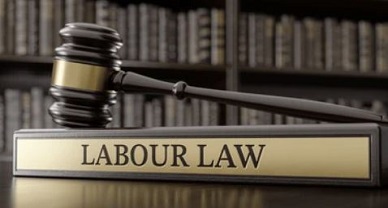Labor Rights Prevail: The Gratuity Battle at IIT Bombay
Introduction
Retired gardener of IIT Bombay committed suicide after fighting for 4 years for gratuity, that too, on the night after International Labor Day. This case is going to be a landmark for contractual workers to demand gratuity from their employer. Till this judgment, no worker from IIT’s had filed a case for gratuity.
This case set a precedent for determining labor rights and the application of the Payment of Gratuity Act, 1972, on educational institutions. IIT Bombay challenged the ruling in favor of the workers by the Controlling Authority (Assistant Labor Commissioner) and the Appellate Authority (Deputy Chief Labor Commissioner) in the Bombay High Court. The Bombay High Court upheld the decision of the Controlling Authority.
Name of the Case: Indian Institute of Technology, Bombay V. Tanaji Babaji Lad & Ors[1]
Background of the Case:
There were three workers who worked for IIT Bombay for more than three decades despite changes in the contractors. They were employed by the mediators for IIT Bombay but not directly by IIT Bombay. Three employees were employed continuously for work at IIT Bombay, which created a de facto employer-employee relationship between the workers and IIT Bombay.
In 2019, three workers of IIT Bombay were orally removed from work as they completed 60 years of age, and it was time for their retirement as they are non-academic staff as per the IIT Bombay Rules. The three workers asked IIT Bombay for gratuity, but they refused to pay the same.
They approached the Controlling Authority, and the Assistant Labor Commissioner ordered in favor of the workers, holding IIT Bombay liable to pay gratuity to all (Rs. 4,28,805 to Raman) along with 10 percent interest per annum from the date of retirement under the Payment of Gratuity Act, 1972.
IIT Bombay filed an appeal against this decision to the Appellate Authority.
In 2024, the Appellate Authority upheld the decision of the controlling authority. One of the workers named Raman Garase, who worked for 38 years at IIT Bombay as a gardener, committed suicide on May 2, 2024, as he couldn’t bear the expenses of his own medical bills. Subsequently, after the Judgment of Appellant Authority, IIT Bombay filed an appeal in the High Court of Bombay.
Legal Issues Involved:
- Whether there is employee and employer relationship between the Workers who worked as contract workers under multiple contractors for the same institute and the IIT Bombay?
- Will the principal employer (IIT Bombay) be held liable to pay gratitude to the workers who worked under multiple contractors for the institute?
- Will the Cummins (I) Ltd V. Industrial Cleaning Services & Ors case be applicable as precedent for this case?
Arguments of the Parties
Petitioner (IIT Bombay):
- The contractors employed the workers; the institute didn’t employ them directly, and also the management and the payment of the salary are being done by the contractors. So, there is no employee-employer relationship between the institute and workers.
- Institute nowhere holds liability to pay gratuity to workers. Liability is on contractors who employed them as per labor laws and also under the Payment of Gratuity Act, 1972.
- Petitioner cited Cummins (I) Ltd V. Industrial Cleaning Services & Ors case to state that the principal employer is not liable to pay the gratuity until or unless there is a direct employee-employer relationship between them.
Respondents (The Workers):
- They had worked at IIT Bombay for three decades despite the change in multiple contractors, and the supervision and control over the worker’s daily activities create a de facto employee-employer relationship.
- The institution falls within the definition of the employer as per Section 2(f)(iii) of the Payment of Gratuity Act, 1972, as it holds the ultimate control over the workplace, and the liability to pay the gratuity should not be on contractors but on the principal employer, as contractors are merely intermediaries.
- The contractors didn’t pay the gratuity, and if the workers start filing cases on every contractor, there will be multiple proceedings, and this will lead to a long time and injustice to the workers.
- The court should consider the urgency of the dispute resolution on humanitarian grounds, as one of the workers among the respondents committed suicide due to the nonpayment of gratuity, as there were huge medical expenses that he couldn’t bear.
- Respondents, as a counter to the citing Cummins (I) Ltd V. Industrial Cleaning Services & Ors case, stated that, unlike in this case, they were only employed at IIT Bombay, not anywhere else by all the contractors.

Judgment:
The Bombay High Court upheld the rulings of the Controlling Authority and Appellant Authority and held that IIT Bombay is liable to pay the gratuity amount to the respondents with 10 percent interest from the date of retirement.
The court directed IIT Bombay to pay the interest of the gratuity till now within two months and allowed the legal heirs of the deceased respondent to withdraw the money deposited with the Appellant Authority.
The court also dismissed the writ petition filed by IIT Bombay upholding the right of workers to get gratuity.
Reasoning:
Court observed that
- There exists an employee-employer relationship, as the workers had worked at IIT Bombay exclusively for a long time, even after many contractors changed, and the institution is an employer as per the act because it holds ultimate control.
- There is liability of IIT Bombay to the gratuity, as the contractor has failed to pay, and the institution can’t evade responsibility for paying gratuity.
- The purpose of the Payment of Gratuity Act, 1972, is violated if workers are forced to go through proceedings against multiple contractors.
- This case is different from the Cummins (I) Ltd case, as they were only employed at a specific place.
What is gratuity?
Something given voluntarily or beyond obligation usually for some service.[2]
Conditions where Employee is eligible for Gratuity:
Section 4 of the Payment of Gratuity Act, 1972: An employee is eligible to get paid gratuity if he rendered services for at least five years[3].
The gratuity will be given if the employee gets terminated due to retirement, superannuation, death, disablement due to accident or a disease, or resignation.
In case of death, the five years of service won’t be applicable.
In case the employee is dead, the amount will be given to the legal heir, and if the legal heir is a minor, the amount will be with the controlling authority for investment, which can be taken by the legal heir after he becomes major.
Conclusion
This is a landmark judgment in labor law. In this case, the long-serving workers of IIT Bombay were given gratuity even though they were working under different contractors. This judgment gives the clear explanation for the employee-employer relationship. In this case, the principal employer was held liable to pay gratuity as the workers were continuously serving at the institution for three decades. This case underscores the importance of dispute resolution in time and fair treatment; justice delayed is justice denied, as one of the workers committed suicide due to the delay in getting gratuity. The Bombay High Court has done complete justice by upholding the decisions of the controlling authority and the appellant authority.
Author: Patenge Chathrapathi, A Student at Student at Damodaram Sanjivayya National Law University. in case of any queries please contact/write back to us at support@ipandlegalfilings.com or IP & Legal Filing
References:
- Bombay HC Dismisses IIT Bombay’s Appeal Against Payment Of Gratuity To Contract Workers by Shreya Shekhar. Available at: https://www.livelaw.in/labour-service/bombay-hc-dismisses-iit-bombays-appeal-against-payment-of-gratuity-to-contract-workers-272015
- If workmen engaged through multiple contractors, contract labor would be employees of principal employer for purpose of gratuity Available at: https://taxguru.in/corporate-law/workmen-engaged-multiple-contractors-contract-labour-employees-principal-employer-purpose-gratuity.html
- Labourers Vs IIT-Bombay: Contract Workers Win A High Court Case For Gratuity Payment, Could Set National Precedent by Aarefa Johari. Avaiable at: https://article-14.com/post/labourers-vs-iit-bombay-contract-workers-win-a-high-court-case-for-gratuity-payment-setting-national-precedent-672d8155c12b3
- IIT Bombay Held Liable for Gratuity of Contract Workers Under Payment of Gratuity Act. Contractual Workers Serving Continuously at IIT Bombay for Decades Entitled to Gratuity; IIT Bombay to Pay Gratuity and Interest. Available at: https://www.lawtext.in/judgement.php?bid=892
- Workers who sowed a Seed: Story of IIT Bombay Workers’ Fight for Gratuity by Akshay Sawant, Pranav Jeevan P and Rushikesh Gawade. Available at: https://sabrangindia.in/workers-who-sowed-a-seed-story-of-iit-bombay-workers-fight-for-gratuity/
[1] Indian Institute of Technology, Bombay V. Tanaji Babaji Lad & Ors, (2024)
[2] “Gratuity.” Merriam-Webster.com Dictionary, Merriam-Webster, https://www.merriam-webster.com/dictionary/gratuity.
[3] Payment of Gratuity Act, 1972 § 4.


